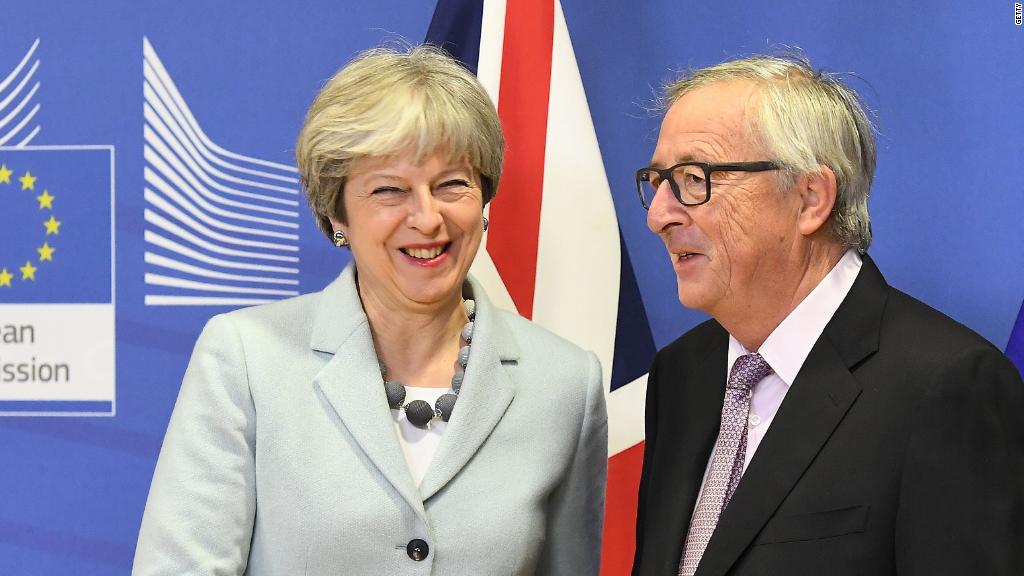
Europe has set a target date for when Brexit will really hit.
The European Commission said Wednesday that it is open to a transitional period that will help Britain ease out of the European Union. But it should be over by the end of December 2020.
Chief EU negotiator Michel Barnier told reporters that any transition should be "short," "specific" and align with the bloc's budgeting process.
Britain will need a transition after Brexit that will avoid businesses having to adjust to new rules and regulations twice.
Prime Minister Theresa May has asked for an "implementation period" of two years beyond March 2019, which would be three months longer than the transition outlined by the EU on Wednesday.
But many businesses say they need at least three years to adjust.
"The end date proposed by the commission seems better-suited to the EU's bureaucratic framework than to real-world business conditions," said Adam Marshall, director general at the British Chambers of Commerce.
"The two sides' main criterion should be to set a timeframe that allows businesses on both sides of the English Channel to adequately prepare for a new trading relationship between both parties," he added.
Related: The CNNMoney Brexit jobs tracker
Europe says it will allow a transition only if Britain is willing to accept all EU law -- including new laws passed during that period -- and EU judicial oversight.
Meanwhile, Britain won't have a say in any new EU rules.
Businesses are clamoring for the details of a transition to be settled as quickly as possible so they can start planning.


